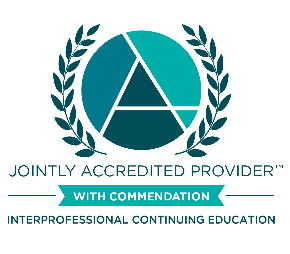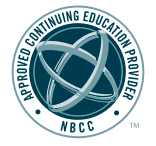A Resource for Healthcare and Social Services Professionals
December 22, 2023
12:00 pm–12:30 pm ET
This training will introduce using brief negotiated interviewing (BNI) for alcohol consumption and the steps involved in this approach. The components of the BNI will be reviewed in detail including building rapport, pros and cons of use, offering information and feedback, assessing readiness for change, and developing a plan.
Via Zoom
This training will introduce using brief negotiated interviewing (BNI) for alcohol consumption and the steps involved in this approach. The components of the BNI will be reviewed in detail, including building rapport, pros and cons of use, offering information and feedback, assessing readiness for change, and developing a plan. Components of motivational interviewing (MI) will also be reviewed to better complete the BNI. Specific strategies as it related to alcohol use and changes will be highlighted.
Across care teams, the role of the BNI and motivational interviewing can be a critical tool to better understand patients' alcohol use, risk, and knowledge. Through discussion of the BNI and MI components, care teams will be better equipped to communicate with their patients/clients and better understand their alcohol use and motivation to make changes. These skills can help support the needs of patients who use alcohol.
Prescribers, nurses, social workers, and other clinical and non-clinical staff.
Brittany (Britt) is a clinical nurse educator for Boston Medical Center's Grayken Center for Addiction Training and Technical Assistance. After starting her professional career at Boston Medical Center, she is thrilled to return to her roots supporting patients with substance use and caring for adolescent patients. She is a doctorally prepared, board-certified family nurse practitioner. Her passion is caring for youth and families, especially those with substance use disorder. Her clinical interests include adolescents/young adults, co-occurring mental health disorders, optimizing safety/overdose prevention, and improving continuity of care among DCF/DYS-involved youth. She has over a decade of experience working in addiction medicine from clinical operations to education/training. She pursued her DNP degree to continue to work to bring best practices into clinical care. Britt has published on various topics, including stigma for youth, caring for adolescents with substance use disorders and the role of addiction training for providers. She has also co-authored a book chapter on caring for adolescents with substance use. She is a member of Sigma Theta Tau International and AMERSA (The Association for Multidisciplinary Education and Research in Substance use and Addiction). She received her Doctor in Nursing Practice (DNP) and Master's in Nursing degrees from the University of Massachusetts, Graduate School of Nursing. She also has a Master's in Medical Science from Boston University Chobanian & Avedisian School of Medicine.
Following this training, participants will have the knowledge to:
Boston Medical Center Grayken Center for Addiction TTA, Massachusetts Department of Public Health, Bureau of Substance Addiction Services (DPH/BSAS)
Funding for out of state attendees is provided by the Opioid Response Network (ORN).
Funding for this initiative was made possible (in part) by grant no. 1H79TI083343 from SAMHSA. The views expressed in written conference materials or publications and by speakers and moderators do not necessarily reflect the official policies of the Department of Health and Human Services; nor does mention of trade names, commercial practices, or organizations imply endorsement by the U.S. Government.
REQUIREMENTS for credit
Please note this policy is strictly enforced for accreditation purposes. Participants will forfeit collection of credit and certificates of completion if more than 10 minutes of the training is missed.
CME
 In support of improving patient care, Boston University Chobanian & Avedisian School of Medicine is jointly accredited by the Accreditation Council for Continuing Medical Education (ACCME), the Accreditation Council for Pharmacy Education (ACPE), and the American Nurses Credentialing Center (ANCC), to provide continuing education for the healthcare team.
In support of improving patient care, Boston University Chobanian & Avedisian School of Medicine is jointly accredited by the Accreditation Council for Continuing Medical Education (ACCME), the Accreditation Council for Pharmacy Education (ACPE), and the American Nurses Credentialing Center (ANCC), to provide continuing education for the healthcare team.
Boston University Chobanian & Avedisian School of Medicine designates this live activity for a maximum of 0.50 AMA PRA Category 1 Credit(s)™. Physicians should claim only the credit commensurate with the extent of their participation in the activity.
Nursing
Boston Medical Center is approved as a provider of nursing continuing professional development by the American Nurses Association Massachusetts, an accredited approver by the American Nurses Credentialing Center’s Commission on Accreditation. Participants who complete and return the evaluation and stay for the entire session will be awarded 0.50 contact hours.
LMHC
 BMC Grayken Center of Addiction TTA has been approved by NBCC as an Approved Continuing Education Provider, ACEP No. 7188. Programs that do not qualify for NBCC credit are clearly identified. BMC Grayken Center of Addiction TTA is solely responsible for all aspects of the programs. For this program, 0.50 contact hours will be offered to participants who attend the training and complete the evaluation.
BMC Grayken Center of Addiction TTA has been approved by NBCC as an Approved Continuing Education Provider, ACEP No. 7188. Programs that do not qualify for NBCC credit are clearly identified. BMC Grayken Center of Addiction TTA is solely responsible for all aspects of the programs. For this program, 0.50 contact hours will be offered to participants who attend the training and complete the evaluation.
LADC/CADC & Recovery Coach
Grayken Center for Addiction TTA is approved to offer LADC/CADCs and recovery coaches who complete this course 0.50 general continuing education credits.
Disclaimer
Continuing education (CE) requirements vary by license and jurisdiction. When requesting continuing education credits, please ensure you are following the rules and regulations determined by the board regulating your license. Boston Medical Center Grayken Center for Addiction TTA does not oversee adherence to licensing requirements and regulations.
THIS CONTINUING EDUCATION PROGRAM IS INTENDED SOLELY FOR EDUCATIONAL PURPOSES FOR QUALIFIED HEALTH CARE PROFESSIONALS. IN NO EVENT SHALL BOSTON UNIVERSITY BE LIABLE FOR ANY DECISION MADE OR ACTION TAKEN IN RELIANCE ON THE INFORMATION CONTAINED IN THE PROGRAM. IN NO EVENT SHOULD THE INFORMATION CONTAINED IN THE PROGRAM BE USED AS A SUBSTITUTE FOR PROFESSIONAL CARE. NO PHYSICIAN-PATIENT RELATIONSHIP IS BEING ESTABLISHED. IN NO EVENT SHOULD INFORMATION IN THE MATERIALS REGARDING LAWS, REGULATIONS, OR LEGAL LIABILITY BE CONSIDERED LEGAL ADVICE OR USED AS A SUBSTITUTE FOR CONSULTING WITH AN ATTORNEY.